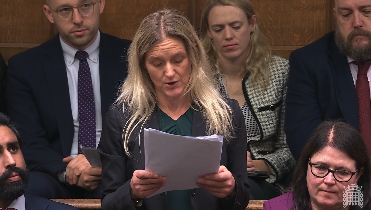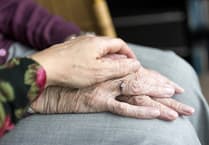The quiet after the vote was very noticeable. Not quite silence, but something very close to it. No one said “hear, hear” or waved an order paper.
There was just a deep sense of the enormity of what the British Parliament had voted on.
It is a rare for there to be Parliamentary vote where you don't know in advance what the result will be and even on day, there was uncertainty over what would happen.
Truth be told, MPs’ minds aren’t often changed by what is actually said once a Commons debate has started. But there are exceptions, and it felt like this could be one.
Speeches were so extraordinarily heartfelt and often personal. And there was a moment when a discussion about who could act as a proxy in decision making had MPs reaching for their copy of the Bill to check the exact wording of Clause 15 (5) (b).
I had received hundreds of emails and letters from East Hampshire constituents – and met a number in person – from both ‘sides’ of the debate. So many accounts were exceptionally painful even to hear or read about; the anguish of loved ones’ families is almost unimaginable. I am not at all surprised at the strength of people’s views.
I absolutely understand the depth of feeling – and its deep rooting in compassion and love – of those who just want to be able to relieve suffering of friends and family members.
I listened to, heard and appreciated that motivation. I also retained a deep worry about unintended effects. This weighed heavily on me and ultimately I voted against.
There had been concern aired in the run-up about risks of coercion, and Kim Leadbeater had gone to lengths to ensure safeguards against this in the Bill.
But the pressures I worried about more were not those from others, but from self.
It was an unusual position to find myself in the voting lobby next to Jeremy Corbyn, while many friends and colleagues were voting the other way.
The two cabinet ministers who would have most direct responsibility for implementing the legislation were with me too, voting against it. It was not your usual political split.
It had been said a few times that, at this early stage of the legislation, this was really just a vote to ‘carry on the debate’.
A Second Reading vote is on the principle of the Bill. In theory it could still be voted down altogether at the later Third Reading stage though that is rare in practice.
There is a still much attention to come on this Bill, in and out of Parliament, as it goes through its line-by-line scrutiny.
This is the responsibility of law-making and I will continue to listen to constituents on this matter and reflect carefully on what can be done by legislators to ensure safeguards are as watertight as they can possibly be.






